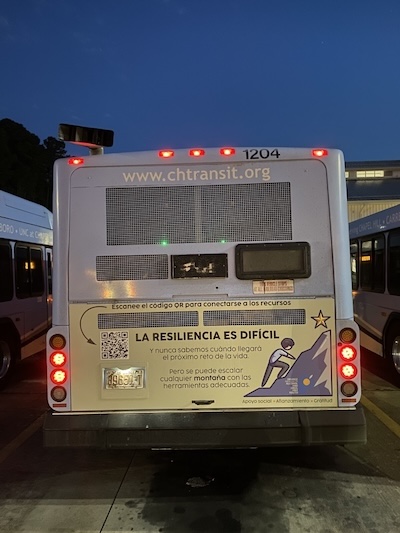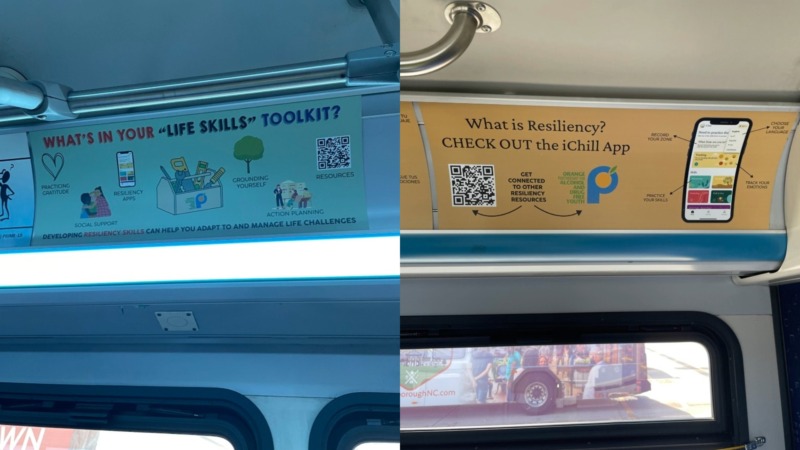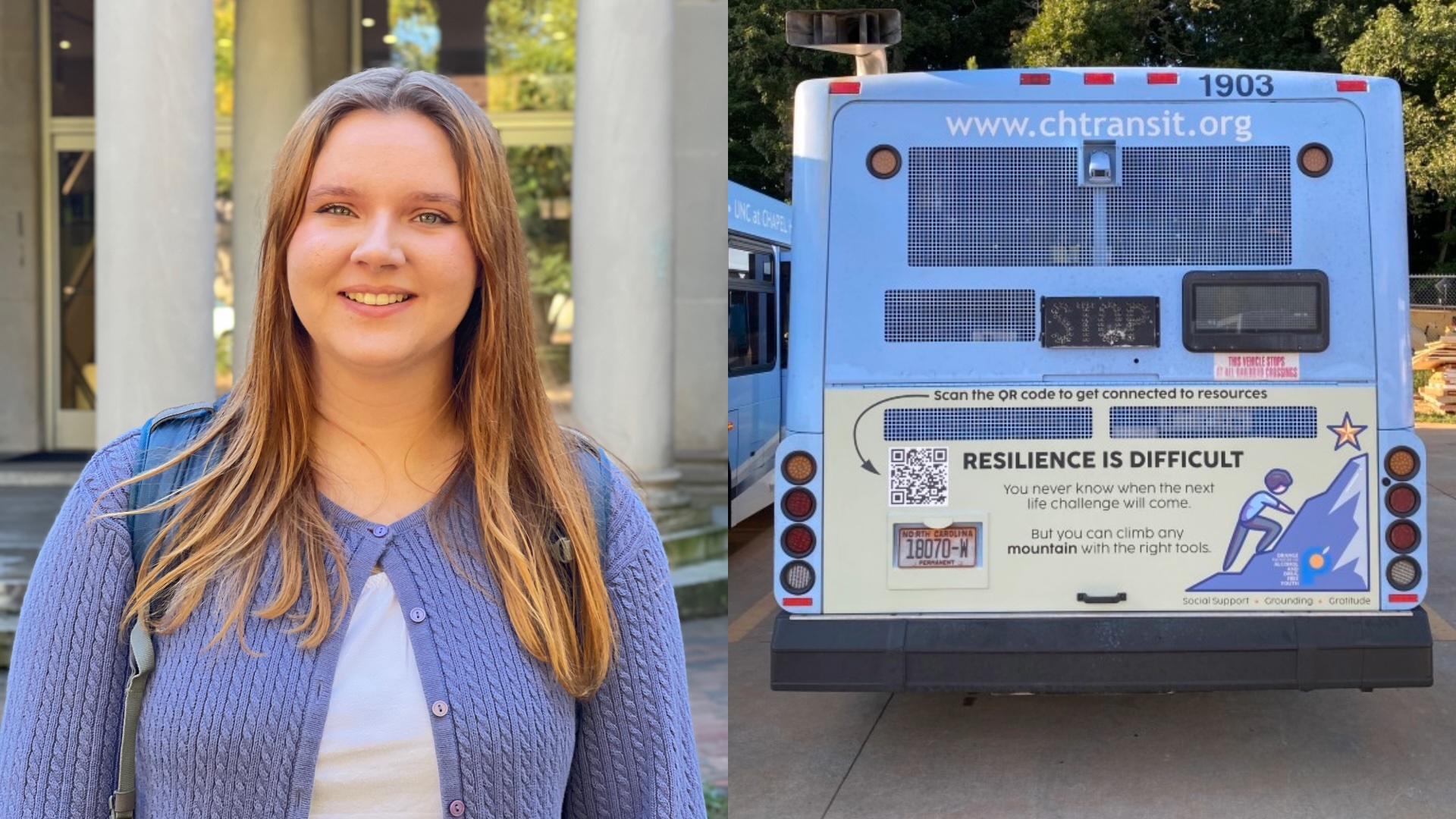This September, in recognition of Suicide Prevention Month, Annabelle Oberst, a May 2025 graduate of the UNC School of Education’s Human Development and Family Science program, helped lead a county-wide campaign that shines a light on resiliency and brings critical awareness to 988, the national suicide and crisis helpline.
The campaign, developed during Oberst’s HDFS internship at the Orange Partnership for Alcohol and Drug Free Youth in collaboration with internship supervisor and an area advertising agency, emphasizes prevention and coping skills that strengthen mental well-being.
And if you have seen a Chapel Hill Transit bus this past month, you have seen Oberst’s work in motion.
After graduating, Oberst, who also double majored in public policy with a minor in creative writing, joined the Orange Partnership for Alcohol and Drug Free Youth, a community coalition based in Hillsborough, North Carolina, as a program assistant, leading prevention campaigns and youth engagement initiatives across the county.
The Resiliency Campaign Oberst worked closely on emerged from the Orange Resilience Initiative (ORI), a broader effort among coalition members to address mental health in the community. Much of ORI’s work centers on destigmatizing mental health conversations and began two years ago with a media campaign focused on intervention and shared on Chapel Hill Transit buses.
Last year, the coalition began training facilitators in the Community Resilience Model™ through the Trauma Resource Institute to bring resiliency skill-building directly into the community. After two years of awareness work, the next step was to introduce resiliency more intentionally to the public through a new campaign.
“While our previous campaign focused on crisis response, we wanted this one to highlight prevention and help people build coping skills before they reach a crisis,” Oberst said.
The Resiliency Campaign appears on Chapel Hill Transit buses, both inside and out, featuring the tagline: “Resilience is difficult, but anyone can climb a mountain with the right tools.”
“This initiative is just one piece of our broader goal: to promote well-being, reduce stigma, and connect communities through prevention education,” Oberst said.
Oberst also collaborated with El Centro Hispano, El Futuro, and Orange County Schools to produce Spanish translations of the ads, carefully considering dialect variations across Latin American communities to ensure the messaging was clear and universal.
She also helped expand the campaign’s reach by distributing materials throughout rural areas and partnering with community centers, churches, and small businesses.
“We wanted our campaign to do more than share resources, and we wanted it to give people the skills to navigate life’s challenges,” Oberst said. “Meeting people where they are, whether on a bus or in a community center, is how prevention becomes possibility.”
With guidance from Gayane Chambless, program director of the Orange Partnership for Alcohol and Drug Free Youth, and other coalition members, Oberst applied her creativity and communication skills to develop impactful prevention messaging.
“Annabelle also worked to develop the media toolkit, including a new bus ad campaign and social media posts to promote resiliency concepts,” Chambless said. “We realized many people may not even understand what ‘resiliency’ is, so Annabelle had to work on messaging to help people understand that and then offer images to describe resiliency ‘toolkit’ skills.”
“I took a fantastic education policy course in the School of Education that helped me see how policy and education intersect,” Oberst said. “That foundation has been instrumental in my role. My job blends community engagement with policy advocacy, often at local, state, and even national levels.
“Carolina helped me see that the change comes from care, whether that’s in a classroom, a policy room, or a conversation,” Oberst said.

